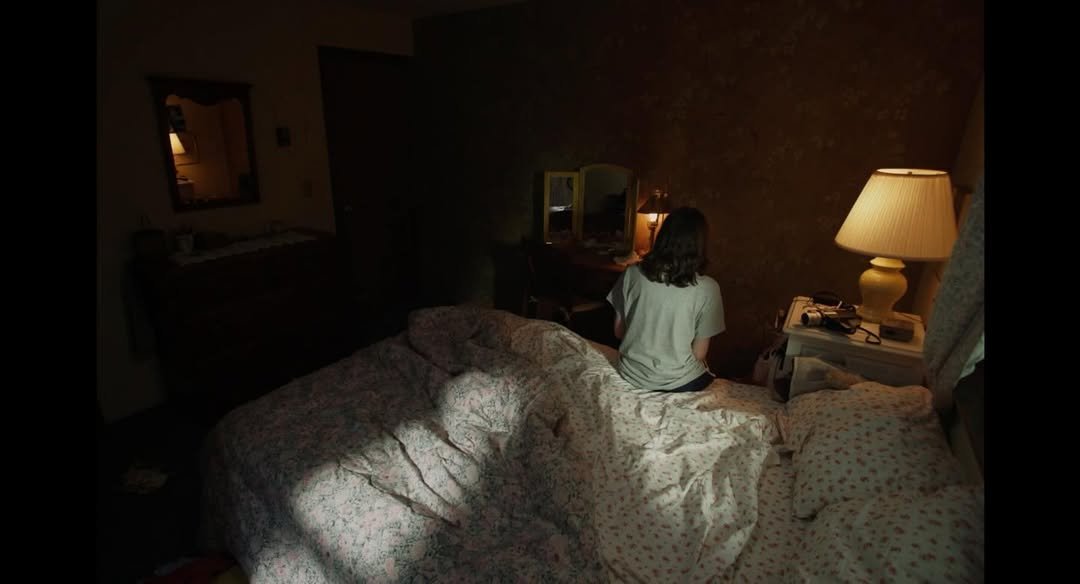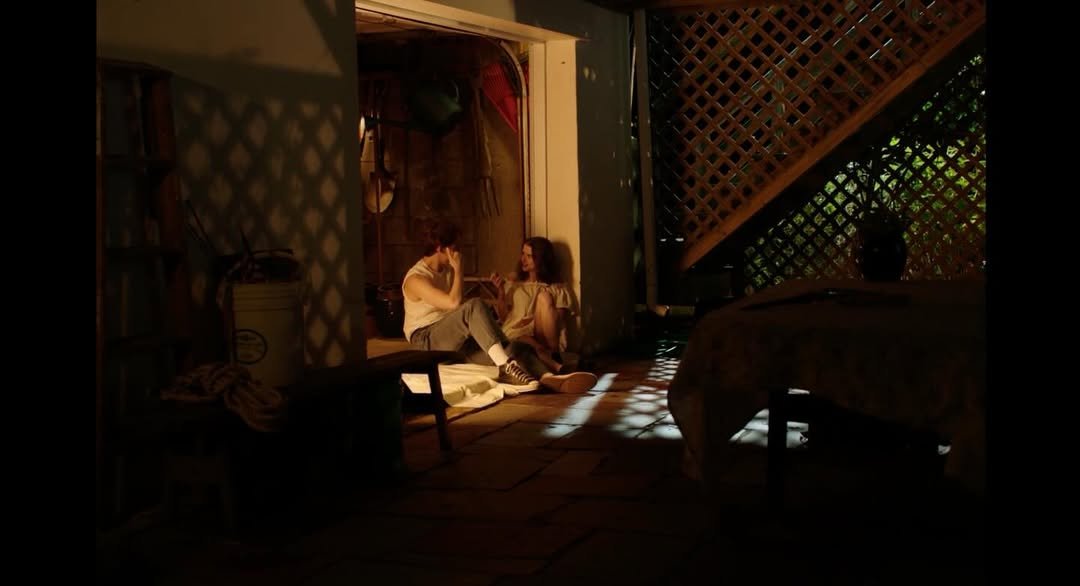There are performances that portray adolescence, and then there are performances that embody it—raw, volatile, and terrifyingly real. Megan Osyen’s turn in Lottie is the latter: an unflinching, aching portrayal of a teenage girl teetering on the edge of reality. Under the delicate yet daring direction of Bella Rieth, Osyen delivers a performance so immersive it doesn’t feel like acting—it feels like confession.
Set in 1973 Rhode Island, Lottie opens with a haze of nostalgia and tension. We’re introduced to our title character through the lens of her own camera—grainy, off-kilter, and intimate. This is her world, or at least her version of it. A family vacation that should be quaint and uneventful becomes the backdrop for a psychological unspooling. When Lottie meets Jonathan, a local pizza delivery boy, he becomes the catalyst for a downward spiral of obsession, alienation, and identity collapse.
Osyen plays Lottie like a wire pulled taut—unpredictable yet deeply controlled. Her deadpan delivery of sharp, acidic voiceover lines (“I’m fifteen—I’m basically an adult”) is both silly and tragic, a defense mechanism hiding something far darker. She doesn’t try to make Lottie likable, which is what makes the performance so courageous. Lottie is messy, confused, destructive—real. There’s a moment late in the film when she looks into her camera and whispers, “My biggest fear is that one day you’ll see me the way I see myself.” Osyen delivers it like a gut punch, with hollow eyes and a whisper of pain that echoes far beyond the frame.
Rieth, who also wrote the screenplay, directs with a sharp understanding of how form can reflect emotion. The visual language of Lottie is one of contrasts. The subjective, whimsical energy of Lottie’s camera is often juxtaposed with static, distant shots that reveal a much bleaker truth. Cinematographer Vincent Longo captures this duality with precision—pastel tones and balanced frames mask a festering unease. At times, the film evokes the symmetry and melancholy of early Wes Anderson, but with an undercurrent of horror and sadness that’s all its own.
Rieth’s direction is at its most powerful when she leans into ambiguity. We never quite know where Lottie’s imagination ends and reality begins—and that’s the point. Mirrors reflect doppelgängers. Conversations play out that may have never happened. The most harrowing scenes are the quietest ones: a razor dragged across a thigh, a kiss that morphs into self-destruction, a mother’s helpless breakdown in an unkempt bedroom.
Supporting performances are strong across the board—Emily Berry, as Lottie’s emotionally weathered mother, is particularly affecting—but this is Osyen’s film, and Rieth wisely keeps the camera tethered to her unraveling psyche. The collaboration between actor and director is seamless. Rieth trusts Osyen to go to uncomfortable places, and Osyen returns that trust with a performance that is fearless and unforgettable.
The production team deserves recognition for creating a world that feels both timeless and specific. From Lex Burger and Jack Leitess’ haunting production design to Emilie Gateau’s pitch-perfect costuming, every detail feels lived-in. The result is a short film that punches far above its weight—one that lingers like a scar.
In the final scene, Lottie’s voice breaks through the darkness: “I wasn’t fragile like a flower. I was fragile like a bomb.” It’s a line that encapsulates the film—and Osyen’s performance—in one devastating stroke.
Bella Rieth has crafted a haunting meditation on identity, obsession, and mental illness. And Megan Osyen has announced herself as a performer with staggering range and emotional depth. Lottie isn’t just a coming-of-age story—it’s a psychological siren song. Fragile, volatile, unforgettable.
Jessie Hobson







